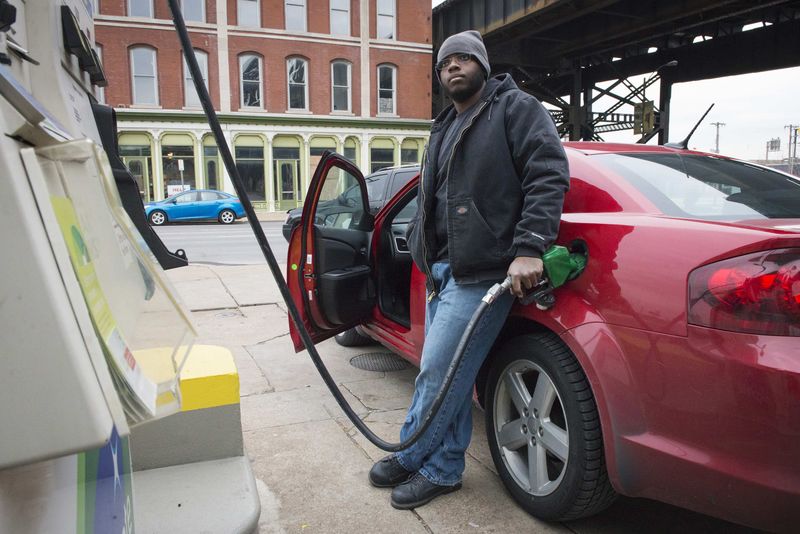By Lucia Mutikani
WASHINGTON (Reuters) - U.S. economic growth slowed sharply in the fourth quarter as weak business spending and a wider trade deficit offset the fastest pace of consumer spending since 2006.
Gross domestic product expanded at a 2.6 percent annual pace after the third quarter's spectacular 5 percent rate, the Commerce Department said in its first fourth-quarter GDP snapshot on Friday.
The slowdown, which follows two back-to-back quarters of bullish growth, is likely to be short-lived given the enormous tailwind from lower gasoline prices. Most economists believe fundamentals in the United States are strong enough to cushion the blow on growth from weakening overseas economies.
"We look for strong domestic consumption to continue supporting growth momentum in the coming quarters even as investment suffers due to falling oil prices," said Gennadiy Goldberg, an economist at TD Securities in New York.
Even with the moderation in the fourth quarter, growth remained above the 2.5 percent pace, which is considered to be the economy's potential. Economists had expected GDP to expand at a 3 percent rate in the fourth quarter.
U.S. stock index futures extended losses and prices for U.S. Treasuries rose further after the data. The dollar weakened against a basket of currencies.
For all of 2014, the economy grew 2.4 percent compared to 2.2 percent in 2013. The report came two days after the Federal Reserve said the economy was growing at a "solid pace," an upgraded assessment that keeps it on track to start raising interest rates this year.
The U.S. central bank has kept its short-term interest rate near zero since December 2008 and most economists expect a mid-year lift-off.
Consumer spending, which accounts for more than two-thirds of U.S. economic activity, advanced at a 4.3 percent pace in the fourth quarter - the fastest since the first quarter of 2006 and an acceleration from the third quarter's 3.2 percent pace.
According to government data, gasoline prices have plunged 43 percent since June, leaving Americans with more money for discretionary spending. A strengthening labor market, despite sluggish wage growth, is also a boost.
MUTED INFLATION
A separate report from the Labor Department showed labor costs rising steadily in the fourth quarter, but remaining well below levels that would bring inflation closer to the Fed's 2 percent target.
Inflation pressures were muted in the fourth quarter. The personal consumption expenditures (PCE) price index fell at a 0.5 percent rate, the weakest reading since the first quarter of 2009. Excluding food and energy, prices rose at a 1.1 percent pace, the slowest since the second quarter of 2013.
The strong pace of consumer spending in the fourth quarter, however, was overshadowed by a drop in capital expenditure. Business spending on equipment fell at a 1.9 percent rate. It was the largest contraction since the second quarter of 2009.
Business spending on equipment had advanced at an 11 percent rate in the third quarter. The fourth-quarter weakness could reflect cuts or delays to investment projects in the oil industry. But it could also be payback after two back-to-back quarters of robust gains.
A wider trade deficit, as slower global growth curbed exports and solid domestic demand sucked in imports, subtracted 1.02 percentage point from GDP growth in the fourth quarter. Trade had added 0.78 percentage point to third-quarter growth.
Restocking by businesses to meet growing demand contributed 0.82 percentage point to fourth-quarter GDP.

Other details of the report were mixed. Government spending was a drag as a defense-driven investment burst faded. Residential construction made a mild contribution to GDP growth.